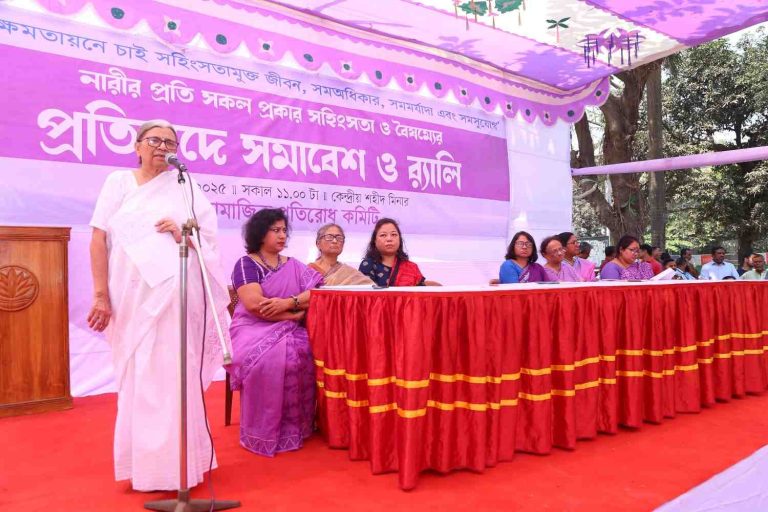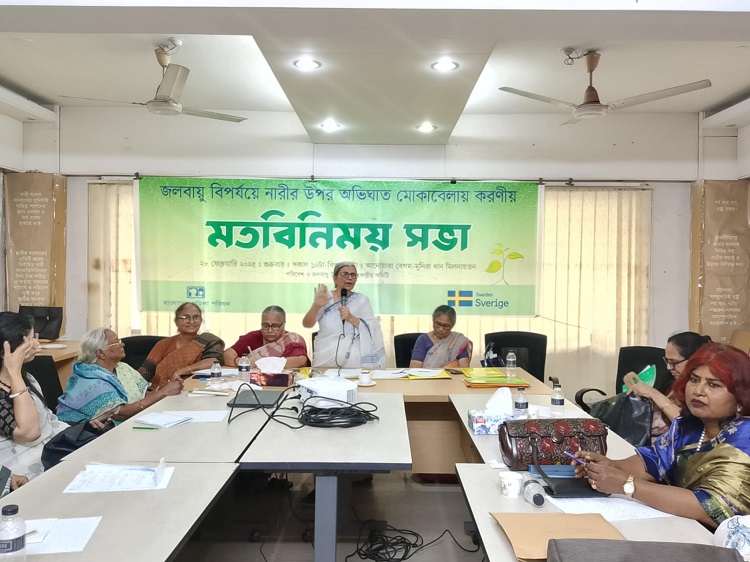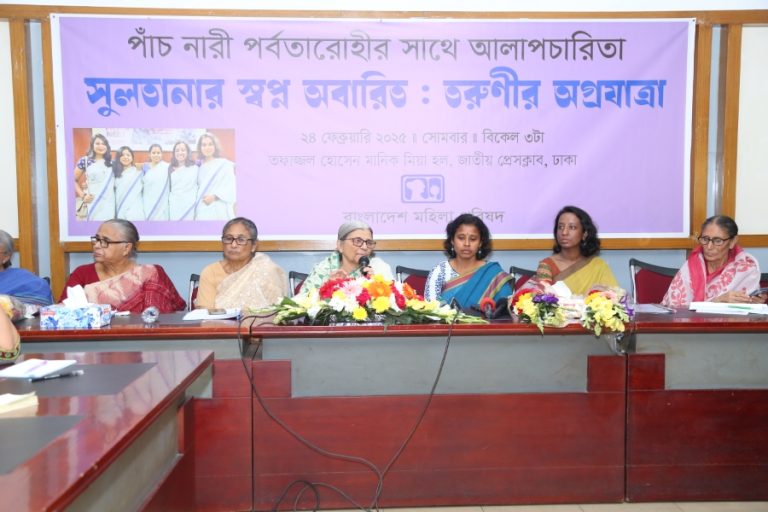On December 5, 2023, the Central Committee of the Bangladesh Mahila Parishad (BMP) organized an online meeting to discuss the situation of violence against women and girls and ways to prevent and combat it. The meeting was chaired by BMP president, Dr. Fauzia Moslem. The Deputy Secretary (Development Branch) of the Ministry of Women and Children Affairs of the Government of Bangladesh and the Project Director of the Multisectoral Program for the Prevention of Violence against Women Dr. Prakash Kranti Chowdhury attended as special guest.
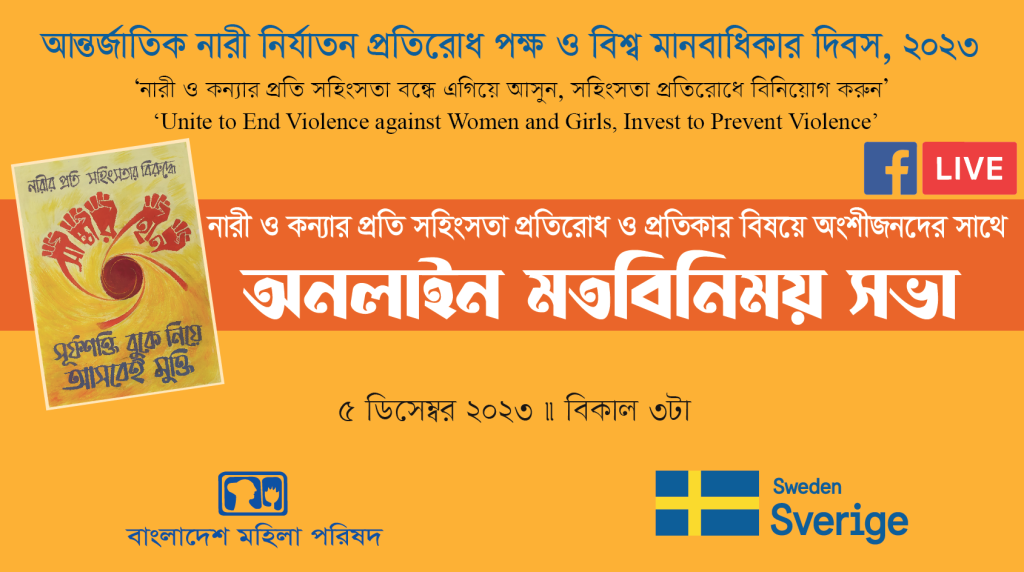
The welcome speech was given by the Joint Secretary of BMP, Adv. Masuda Rehana Begum. Written statement was presented on behalf of the Central Committee by the Acting Director of Legal Advocacy of the Central Legal Aid Aid Sub-committee Adv. Dipti Shikdar. The discussion was attended by Deputy Police Commissioner Humaira Parvin, Women Support and Investigation Division of the DMP; the Special P.P. Adv. Afroza Farhana Ahmed of the Dhaka Women and Children Repression Tribunal-7; Dr. Devika Roy, Assistant Professor of the Forensic Medicine Department of Dhaka Medical College Hospital, the Counseling Psychologist Nuzhat-E-Rahman; Samia Sharif, the Legal Associate of IPAS Bangladesh, and Naznin Akter, Senior Reporter of Daily Prothom Alo. The incident was described by the victim, Mangoli Bagchi, a female footballer from Khulna. The meeting was facilitated by the Central Legal Aid secretary, Rekha Saha. The meeting was attended by Vice-president Sahana Kabir & Rekha Chowdhury, General Secretary Maleka Banu, Joint General Secretary Shima Moslem, representatives of various organizations, journalists from print and electronic media, and the legal team members of the Legal Aid Sub-Committee, totaling 49 participants.
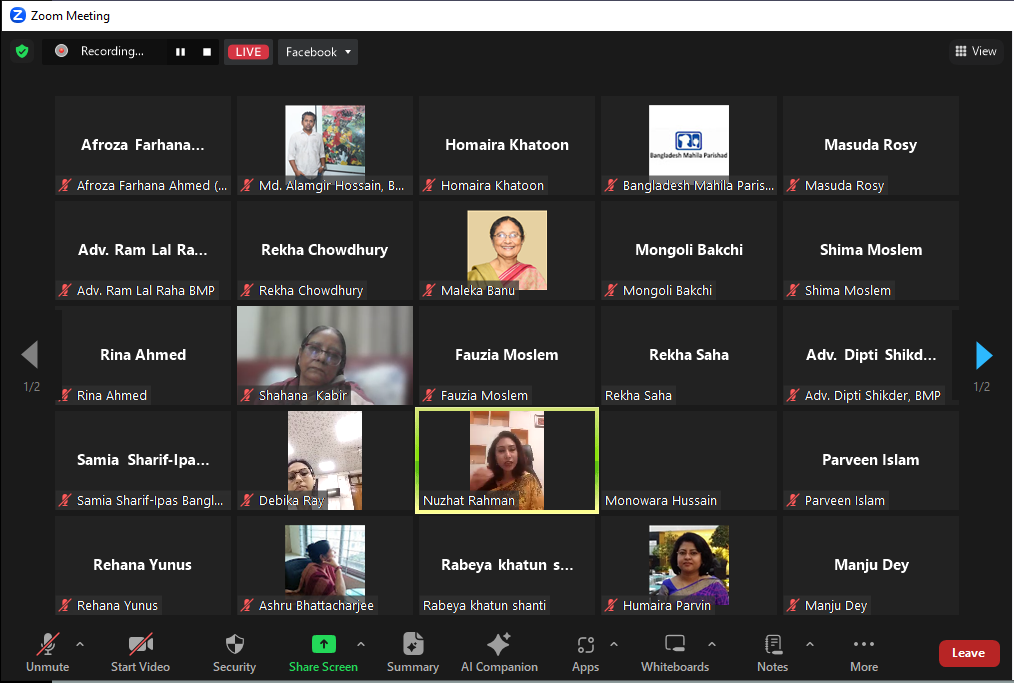
Chief guest Dr. Prakash Kanti Chowdhury, Joint Secretary of the Ministry of Women and Children Affairs, stated that the Ministry of Women and Children Affairs is focused on promoting women’s rights, women’s empowerment, and gender equality, and safety in the country. Several departments and organizations, such as the Women’s Affairs Department and the National Women’s Organization, are working towards these goals. One important step towards empowering women and achieving gender equality is to put an end to all forms of violence against women. The Ministry has set up 14 One Stop Crisis Centers (OSCC) to provide support to women who have experienced violence, and they planned to expand these centers to more districts. He also mentioned other initiatives, like the National Action Plan, that aim to address violence against women and children.
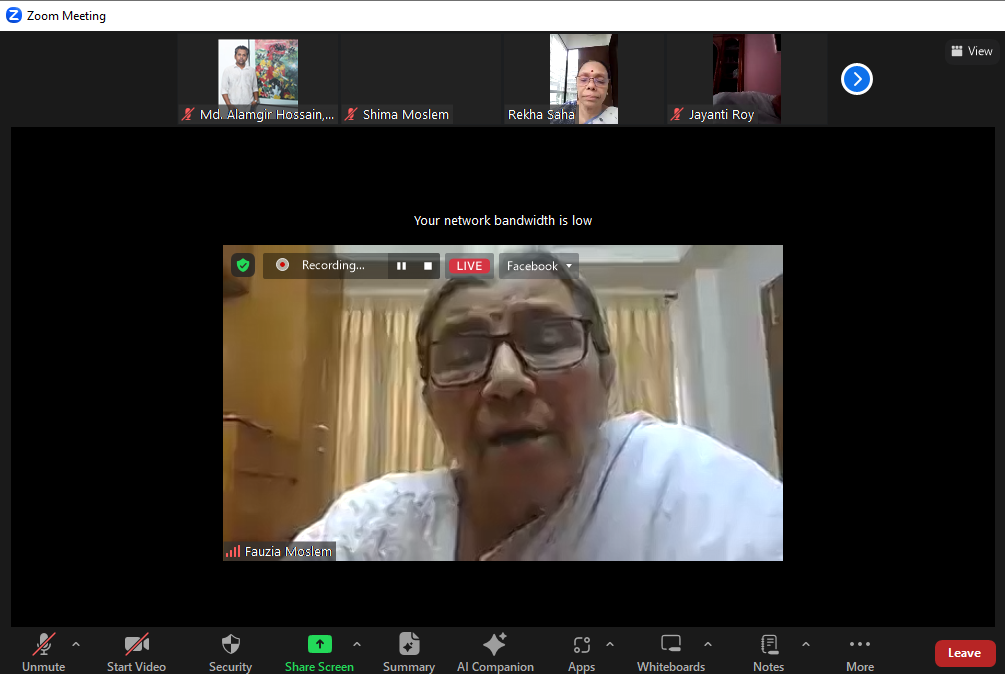
The government has allocated funds specifically for gender-related issues, and they are working to prevent child marriages. MOWCA has established a hotline number (999) and a mobile app called Joy Mobile to raise awareness and offer assistance to women affected by violence. It is crucial for both government and non-governmental organizations to collaborate in order to combat violence against women. Efforts are also being made to strengthen laws and improve their effectiveness in dealing with domestic violence and sexual harassment.
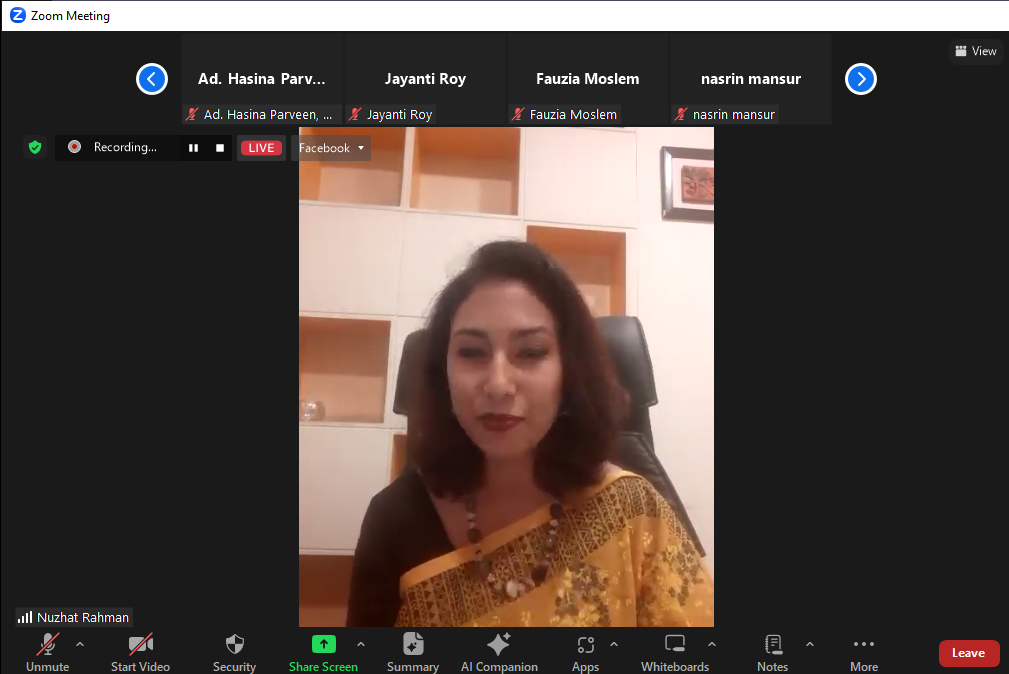
Dr. Fauzia Moslem, President of Bangladesh Mahila Parishad, said that BMP has been working for more than five decades to stop violence against women. While there has been some progress, it is not enough. The law against child marriage needs to be enforced better. Violence against women is shameful. We need to focus on stopping it. It is important to raise awareness and create a society where women will be violence-free and treated fairly. The goal is to have equality between men and women. Dr. Fauzia Moslem asked everyone to work together to stop violence against women and girls.
Other guests along with the victim Mangoli Bagchi also participated in the discussion.
Recommendations:
1. All government and non-government organizations should work together to stop violence against women and make sure men and women are treated equally.
2. Everyone involved should talk and work together to fight violence against women and girls.
3. There should be more labs that can quickly provide medical reports in cases of violence against women.
4. Hospitals should have enough clinical psychologists.
5. Women should have the right to make decisions about their own bodies and reproductive health.
6. Laws should be made to protect people who witness violence.
7. The government should provide financial support to prevent violence against women and girls.
8. Schools should teach about sex and relationships, and teachers and students should have access to counseling services.
9. Parents, students, and teachers should have counseling and discussions about mental abuse.
10. Programs that teach positive parenting should be initiated by the government and non-government organizations.
11. Campaigns should be carried out to promote respect and equality for women in society.
12. Families, schools, colleges, and workplaces should raise awareness about preventing violence against women.

